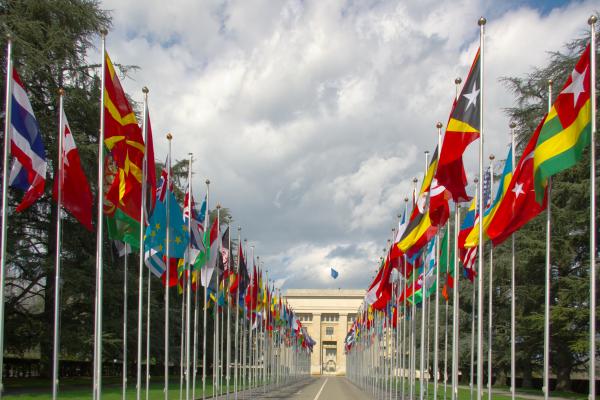IN APRIL, THOUSANDS of people from across the United States and the world, joined by activists and A-bomb survivors from Japan, will flock to New York to demand that the nuclear powers fulfill their nuclear Non-Proliferation Treaty (NPT) obligations to negotiate a legally binding agreement to completely eliminate their nuclear arsenals.
The NPT Review Conference, held at the U.N. every five years, presents an important opportunity for the 189 signatory nations and for civil society to ensure that this treaty is implemented. The treaty rests on three pillars: 1) non-nuclear states forswear becoming nuclear powers; 2) all signatory nations have the right to generate nuclear energy for peaceful purposes (a serious flaw); and 3) the P-5 nations (U.S., Russia, Britain, France, and China) are obligated to engage in good-faith negotiations to completely eliminate their nuclear arsenals.
Forty-five years after the treaty went into effect, the P-5 have yet to fulfill their part of the bargain, leading to a loss of faith by a growing number of nations and the danger that some will opt out of the treaty to equalize the imbalance of nuclear terror. With the U.S. and Russia having engaged in nuclear war exercises during the Ukraine crisis, simulated U.S. nuclear attacks against North Korea, the U.S.-Chinese arms race, and India and Pakistan again at loggerheads, April’s review conference provides a critical opportunity to press for nuclear weapons abolition and to build the nuclear disarmament movement.
Read the Full Article

